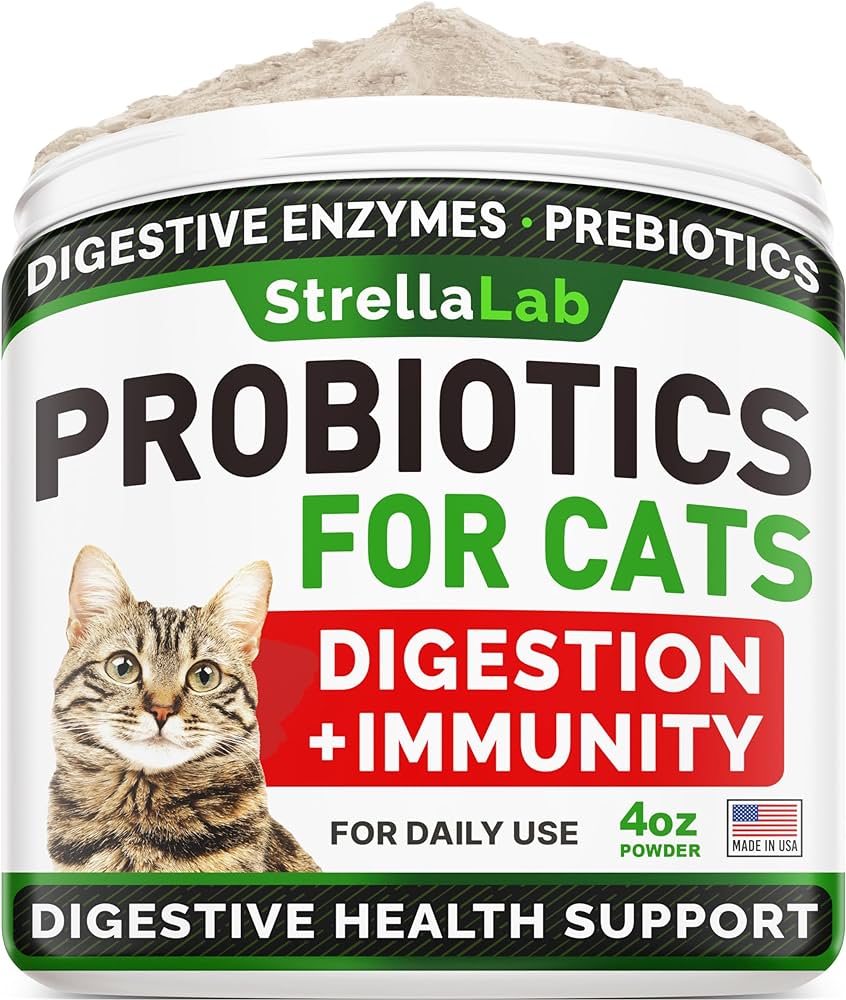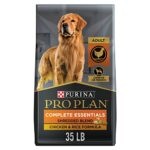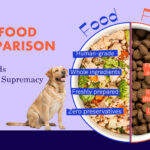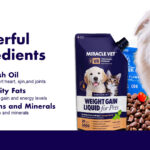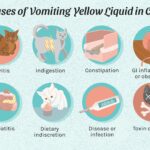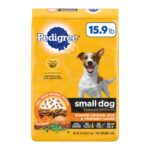Food for Cats With Diarrhea Cats with diarrhea benefit from a bland diet or specially-formulated prescription food. Probiotics can also aid in restoring gut health.
Diarrhea in cats can be a distressing symptom for both the pet and the owner, often indicating a dietary issue or a more serious health concern. A swift dietary adjustment is crucial to help manage your cat’s digestive upset and prevent further health complications.
Choosing the right food for a cat with diarrhea is essential to ensure a quick and gentle return to normal bowel movements. By providing a diet that’s easy to digest and packed with nutrients, you can help soothe your cat’s intestinal tract and promote healing. It’s important to consult with a veterinarian to determine the underlying cause of diarrhea and to get recommendations on the appropriate food and care for your feline friend.
Sensitive Stomachs: When Cats Face Diarrhea
Cats often hide their discomfort, but a sensitive stomach is hard to ignore. Diarrhea in cats can be alarming for pet owners. Understanding the symptoms and causes helps manage your feline friend’s health better. Let’s explore how to spot the signs and grasp what might be upsetting your cat’s digestive system.
Spotting The Symptoms
Diarrhea in cats can vary in severity and duration. Look out for these signs:
- Frequent trips to the litter box
- Loose or liquid stools
- Changes in stool color or smell
- Lethargy or decreased appetite
- Signs of stomach pain or discomfort
Common Causes Behind Feline Diarrhea
Several factors can trigger a sensitive stomach in cats. Key causes include:
| Cause | Description |
|---|---|
| Dietary indiscretion | Eating something they shouldn’t |
| Food intolerance | Reaction to certain foods |
| Infections | Caused by bacteria or viruses |
| Parasites | Like giardia or worms |
| Chronic conditions | IBD or thyroid issues |
| Toxins | Ingestion of poisonous substances |
Remember, persistent diarrhea is a reason to visit the vet. Early detection and treatment are crucial for your cat’s health.
The Impact Of Diet On Feline Digestive Health
Cats with diarrhea need special care, and their diet plays a crucial role in their digestive health. Understanding how diet impacts your feline friend’s digestion can help manage and even prevent digestive upsets.
Nutrition’s Role In Digestion
A balanced diet is key for a cat’s digestive system to function properly. Essential nutrients such as proteins, fats, and carbohydrates must be well-balanced to promote healthy digestion and firm stools.
- Proteins support tissue repair and immune function.
- Fats provide energy and aid in nutrient absorption.
- Carbohydrates, when given in moderation, offer a quick energy source and fiber for bowel regularity.
How Food Influences Gut Flora
The gut flora, made up of beneficial bacteria, is essential for a healthy digestive tract. The right food ensures a balanced gut microbiome, reducing the risk of diarrhea.
| Food Type | Effect on Gut Flora |
|---|---|
| Probiotics | Boost good bacteria levels |
| Prebiotics | Feed beneficial bacteria |
| Fiber-rich foods | Support a diverse microbiome |
First Steps: Reacting To Your Cat’s Diarrhea
Diarrhea in cats can be distressing for both pet and owner. It’s a sign that something isn’t right with your feline friend. Quick and appropriate action is crucial. Let’s explore the initial steps to take when you notice your cat suffering from diarrhea.
Immediate Actions To Take
Here are the immediate steps to follow:
- Assess the situation: Check for other symptoms like vomiting, lethargy, or blood in stool.
- Hydration is key: Ensure your cat has access to clean water to prevent dehydration.
- Dietary management: Temporarily withhold food for 12-24 hours, but never water.
- Comfort and cleanliness: Keep your cat comfortable and ensure the litter box is clean.
When To Consult A Veterinarian
Knowing when to seek professional help can be life-saving for your cat.
- Persistent diarrhea: Lasting over 24 hours calls for a vet visit.
- Additional symptoms: Vomiting, fever, or lethargy alongside diarrhea.
- Blood in stool: This is a serious symptom that needs immediate vet attention.
- Baby kittens: Kittens are vulnerable and need care fast.
- Pre-existing conditions: Cats with health issues may need earlier intervention.
Choosing The Right Food For Diarrhea Relief
When your cat suffers from diarrhea, choosing the right food is crucial for relief. This can help ease their discomfort and speed up recovery.
Ingredients To Look For
Simple, high-quality ingredients are essential for cats with diarrhea. Here’s what to include:
- Pumpkin: Rich in fiber, it helps absorb excess water.
- Probiotics: These aid in restoring gut health.
- Boiled chicken or turkey: Easy to digest and soothing for the stomach.
- White rice: Acts as a binding agent to firm up stool.
Foods To Avoid
Some foods can worsen diarrhea. Keep these away from your cat:
| Food Type | Reason to Avoid |
|---|---|
| Dairy products | Most cats are lactose intolerant. |
| Fatty foods | They can irritate the stomach. |
| Raw food | May contain harmful bacteria. |
| Seasoned food | Spices and additives can trigger diarrhea. |
Homemade Remedies: Safe And Soothing
Homemade Remedies: Safe and Soothing can be a gentle way to alleviate your cat’s discomfort from diarrhea. Carefully selected, easy-to-digest ingredients often prove effective. These remedies focus on binding foods that can help firm up your cat’s stool while ensuring they receive essential nutrients. Let’s explore simple recipes and important precautions for home-cooked meals.
Simple Recipes For Comfort
When your cat’s stomach is sensitive, the right homemade food can help. Simple recipes with few ingredients are best. Here are some easy-to-make options for your furry friend:
- Boiled Chicken: Cook chicken thoroughly, then shred it into small pieces. No bones or skin!
- Pumpkin Puree: Pure pumpkin can aid digestion. Mix a teaspoon with their food.
- Rice Water: Boil rice in a lot of water, strain, and let your cat sip the water.
Precautions With Home-cooked Meals
When you choose to make meals for a cat with diarrhea, safety is paramount. Follow these guidelines:
| Precaution | Reason |
|---|---|
| Avoid Seasonings | Spices can irritate your cat’s stomach. |
| Small Portions | Large meals can overwhelm a sensitive digestive system. |
| Proper Storage | Prevent bacteria by refrigerating unused portions immediately. |
Consult with a vet before introducing new foods. Monitor your cat’s response to home remedies. If symptoms persist, seek professional advice.
Commercial Foods Formulated For Digestive Issues
When our feline friends experience digestive issues, like diarrhea, the right food can make all the difference. Commercial foods formulated for digestive issues are specifically designed to be gentle on your cat’s stomach while providing the necessary nutrients for recovery.
Benefits Of Prescription Diets
Prescription diets offer a tailored approach to your cat’s digestive health. These foods:
- Reduce strain on the digestive system with easily digestible ingredients.
- Contain added probiotics to support a healthy gut flora balance.
- Include the right blend of fibers to firm up stools and regulate digestion.
- Are vet-recommended, ensuring they meet the specific needs of your cat.
Over-the-counter Alternatives
If a prescription diet isn’t an option, over-the-counter alternatives can also be effective. Look for:
- Grain-free formulas that minimize potential allergens.
- Prebiotic fibers to foster beneficial bacteria growth.
- High-quality proteins for easy digestion and nutrient absorption.
- No artificial additives that could upset your cat’s stomach.
The Role Of Fiber: Soluble Vs. Insoluble
The Role of Fiber: Soluble vs. Insoluble plays a crucial part in managing cat diarrhea. Understanding the different types of fiber can help in choosing the right food for your feline friend. Soluble fiber dissolves in water, forming a gel-like substance that helps to slow digestion and manage moisture in the stool. Insoluble fiber does not dissolve in water. It adds bulk to the stool and can help to speed up the passage of food through the digestive system.
Fiber’s Function In Feline Diet
Fiber serves several key functions in a cat’s diet, especially for those with sensitive stomachs. It aids in normalizing bowel movements and improves overall digestive health. By balancing the digestion process, fiber can both alleviate diarrhea and prevent constipation.
- Soluble fiber moderates bowel movements by absorbing water.
- Insoluble fiber accelerates the passage of food in the digestive tract.
Optimal Fiber Sources For Cats
Choosing the right source of fiber is essential for the dietary health of cats, especially when they are experiencing diarrhea. Here are some of the best fiber sources:
| Type of Fiber | Source | Benefits |
|---|---|---|
| Soluble | Pumpkin | Helps absorb water, easing diarrhea |
| Soluble | Apple | Supports bowel regulation |
| Insoluble | Wheat bran | Adds bulk to stool, aiding in faster digestion |
Integrating these fiber sources into your cat’s diet can help manage and prevent episodes of diarrhea. Always ensure any diet change is gradual to avoid further upsetting your cat’s digestive system.
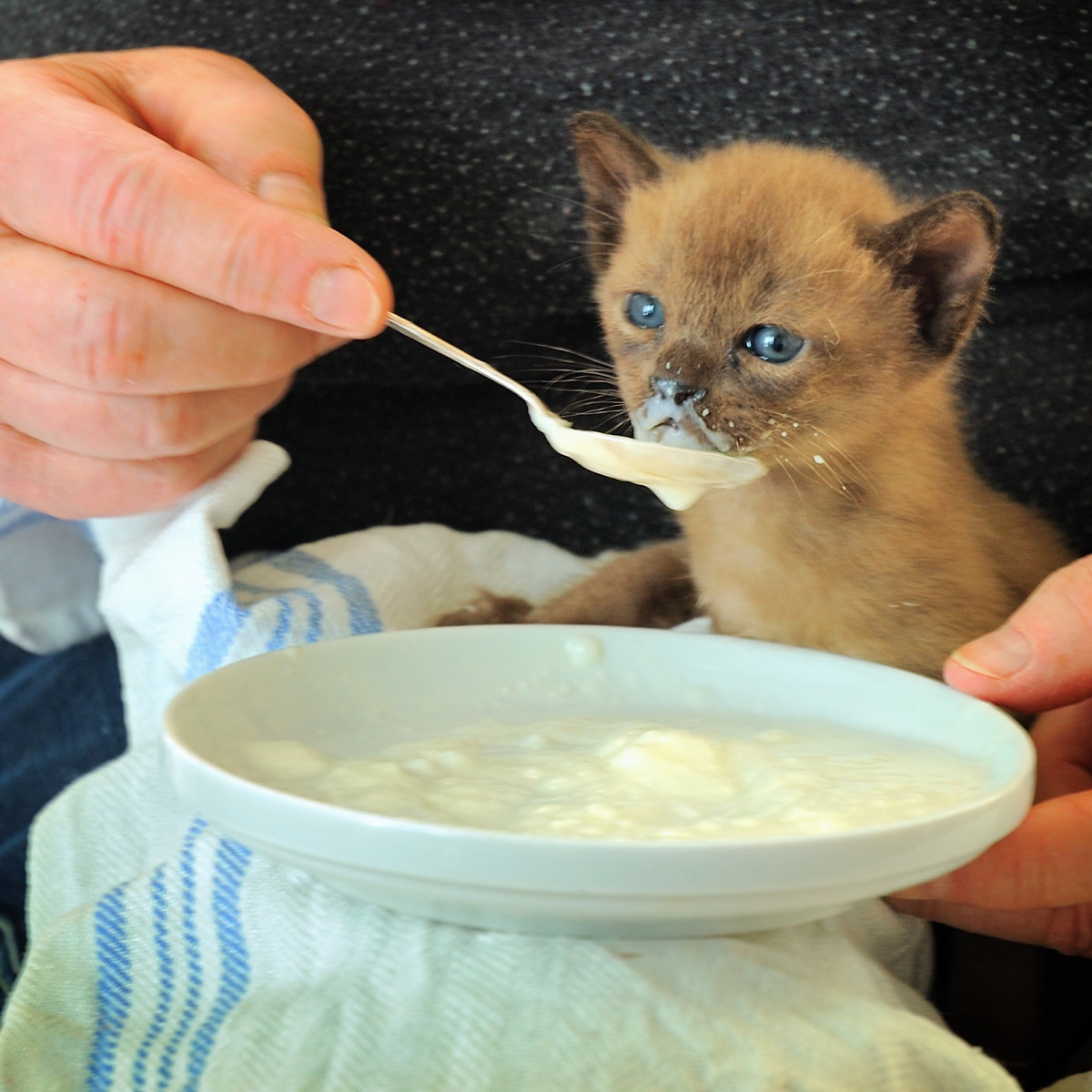
Credit: pethelpful.com
Hydration: The Key To Recovery
When cats experience diarrhea, their bodies lose fluids rapidly. Proper hydration becomes crucial for recovery. Ensuring your cat stays hydrated can help restore health and prevent further issues. Let’s dive into how to encourage water intake and what signs of dehydration to watch for.
Encouraging Water Intake
To promote water consumption, consider these tips:
- Place water bowls around the house.
- Use running water fountains to attract your cat.
- Offer wet food with high moisture content.
- Add water or broth to dry food.
Remember, fresh and clean water should always be available.
Signs Of Dehydration To Watch For
Stay alert for these dehydration symptoms:
| Sign | Description |
|---|---|
| Lethargy | Less movement or interest in activities. |
| Dry Gums | Gums feel sticky or dry to the touch. |
| Sunken Eyes | Eyes may appear less vibrant and receded. |
| Less Elastic Skin | When gently pulled, the skin takes time to return to position. |
Contact a vet if you notice any of these signs in your cat.
Probiotics And Prebiotics: Restoring Balance
When your feline friend suffers from diarrhea, restoring their digestive balance becomes a top priority. Probiotics and prebiotics can play a crucial role in this process. These supplements support a healthy gut environment, essential for your cat’s overall wellbeing.
Understanding Their Benefits
Probiotics are live bacteria that add to the population of good bacteria in your cat’s intestine. Prebiotics, on the other hand, are dietary fibers that feed these beneficial bacteria. Together, they help maintain a balanced gut flora, which is vital for digestion and immune function.
- Enhance digestion by breaking down food particles
- Boost immune system to fight off pathogens
- Reduce inflammation within the gut lining
- Alleviate diarrhea by stabilizing bowel movements
Incorporating Them Into Your Cat’s Diet
Introducing probiotics and prebiotics into your cat’s diet requires careful consideration. Choose supplements specifically designed for cats. Here’s how to start:
- Consult your vet for the best product and dosage.
- Start with small amounts to allow your cat’s system to adjust.
- Look for fortified foods with these supplements.
- Use powders or capsules that mix easily with food.
Remember, consistency is key. Ensure daily intake for optimal results.
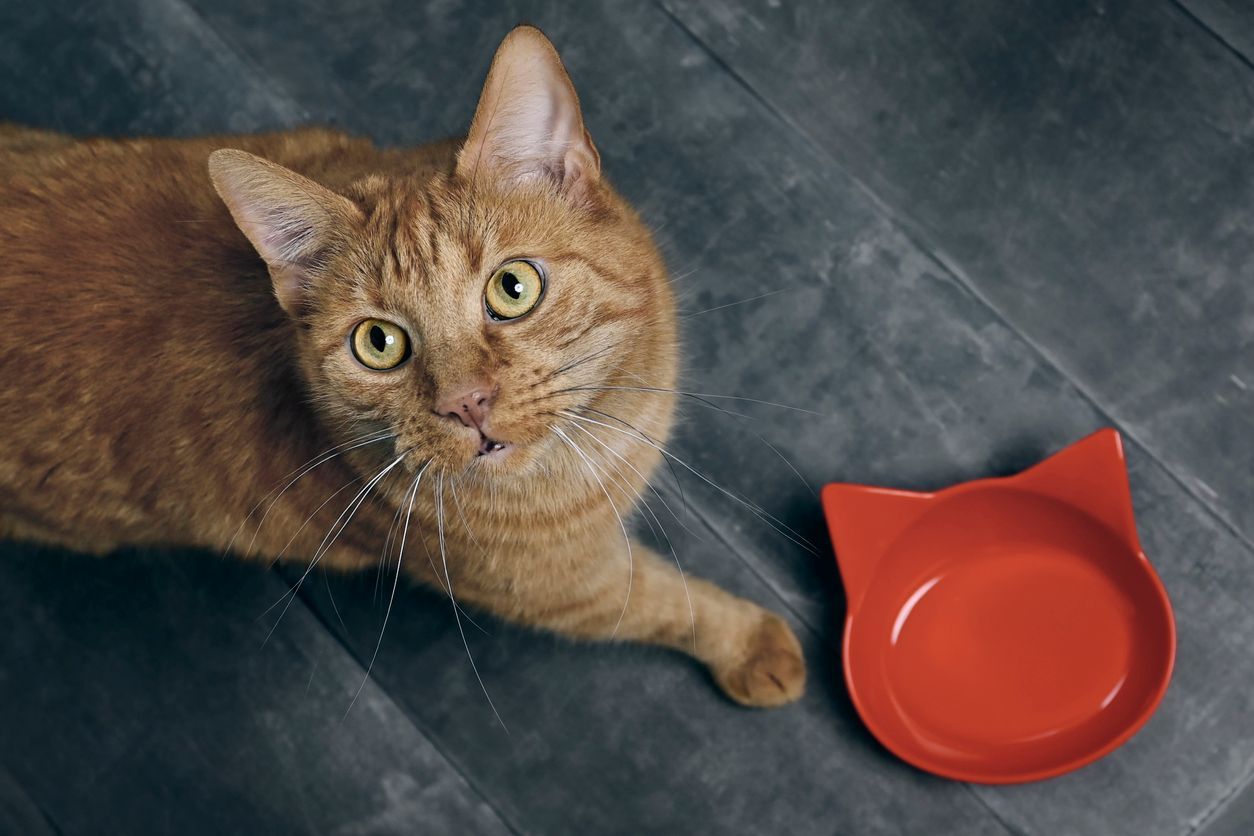
Credit: vetster.com
Transitioning Foods Post-diarrhea
Transitioning Foods Post-Diarrhea is a critical step in helping your cat recover from an upset stomach. The right diet can support their healing process. It’s important to introduce new foods slowly. This helps prevent further digestive issues.
Gradually Introducing New Foods
Patience is key when changing your cat’s diet. Start by mixing a small amount of the new food with their regular food. Increase the new food gradually over several days. This method helps your cat’s digestive system adjust without causing stress.
- Day 1: Serve 75% old food, 25% new food.
- Day 2: Mix 50% old food, 50% new food.
- Day 3: Serve 25% old food, 75% new food.
- Day 4: Offer 100% new food.
Monitoring Your Cat’s Response
Watch your cat closely as you introduce new foods. Look for signs of diarrhea or discomfort. If symptoms return, consult your vet promptly. They may suggest a different diet or further tests to find the cause.
| Signs to Watch For | Action to Take |
|---|---|
| Diarrhea returns | Contact your vet |
| Refusal to eat | Try a different food |
| Vomiting | Seek veterinary help |
Supplements To Support Digestive Health
When your feline friend suffers from diarrhea, you naturally want to ease their discomfort. Dietary adjustments are crucial, but supplements can also play a vital role in restoring digestive health. These supplements aim to rebalance gut flora, support intestinal integrity, and aid in the absorption of nutrients. Let’s explore which supplements can be beneficial for cats with diarrhea.
Which Supplements Can Help?
- Probiotics: Live beneficial bacteria that restore gut balance.
- Prebiotics: Non-digestible fibers that feed good bacteria.
- Glutamine: An amino acid that repairs intestinal walls.
- Pumpkin: High in fiber, helps firm up stool.
- B-vitamins: Support metabolic functions and energy levels.
Safety And Dosage Considerations
Always consult your vet before adding supplements to your cat’s diet. They will recommend safe dosages based on your cat’s specific needs. Over-supplementation can lead to imbalances or adverse reactions. Quality matters, so choose high-grade supplements designed for cats. Follow instructions on labels and monitor your cat’s response.
| Supplement | Benefit | Recommended Dosage |
|---|---|---|
| Probiotics | Restores gut flora | Check product label |
| Prebiotics | Feeds healthy bacteria | Varies by product |
| Glutamine | Repairs gut lining | Consult your vet |
| Pumpkin | Increases fiber | 1-4 teaspoons daily |
| B-vitamins | Boosts metabolism | Per vet’s advice |
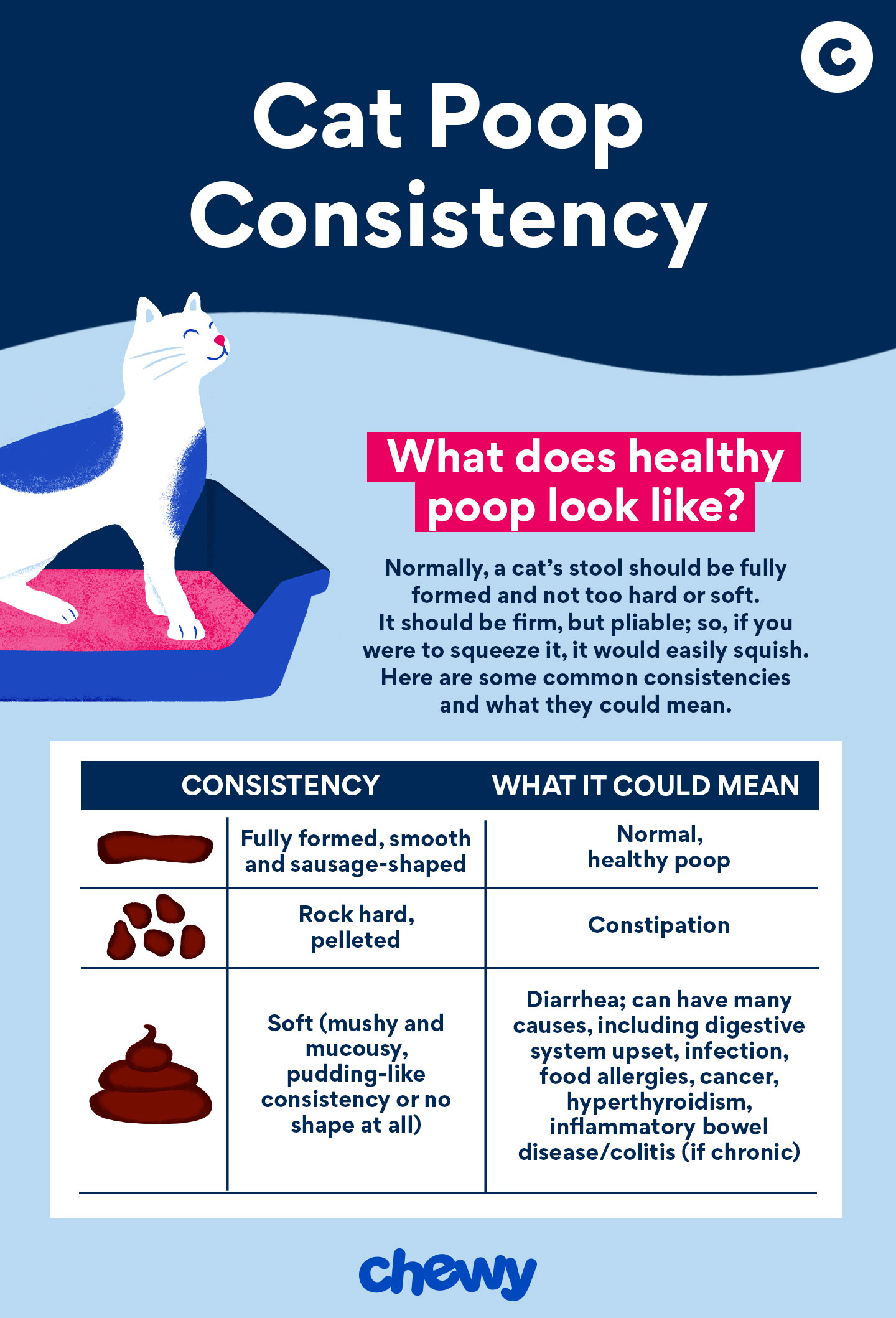
Credit: be.chewy.com
Long-term Dietary Management
When your cat suffers from diarrhea, finding the right long-term dietary management is key. This involves not just short-term fixes but also ensuring their overall digestive health remains strong.
Maintaining Digestive Health
Consistent, high-quality food plays a crucial role in keeping your cat’s digestion on track. Probiotics can also be beneficial. They help maintain a balance of good bacteria in the gut.
- Fiber-rich diets may aid in solidifying stools.
- Easily digestible proteins should be a priority.
- Regular veterinary check-ups ensure optimal health.
Recognizing Potential Triggers
Identifying foods that upset your cat’s stomach is essential. Keep a diary of what they eat. Note any reactions. This can help you pinpoint the culprits.
- Avoid dairy products as many cats are lactose intolerant.
- Grain-free options can be easier on a sensitive stomach.
- Be cautious with raw diets; not all cats digest raw food well.
Common Mistakes To Avoid
Cats with diarrhea require special care in their diet to help manage symptoms and support recovery. Pet owners often make mistakes that can worsen their cat’s condition. Understanding these errors is crucial for your furry friend’s health.
Feeding Human Food
Human food is not suitable for cats with sensitive stomachs. Many foods that are safe for people can cause further irritation in a cat’s digestive system. Here are some key points to remember:
- Avoid spicy, fatty, or sugary foods that can aggravate diarrhea.
- Do not offer any dairy products as most cats are lactose intolerant.
- Stick to vet-recommended diets to ensure proper nutrition.
Inconsistency In Diet
Changing your cat’s diet too quickly can lead to more digestive upset. Gradual transitions are key. Follow these steps to maintain diet consistency:
- Introduce new food slowly, mixing it with the current food.
- Keep the portion sizes consistent.
- Feed your cat at the same times each day.
Regular vet visits will help monitor your cat’s health. Always consult with a professional before making any diet changes.
Case Studies: Successful Dietary Adjustments
Welcome to our focus on Case Studies: Successful Dietary Adjustments for cats with diarrhea. Here, we explore real stories and key takeaways from dietary changes that have helped feline friends recover.
Real-life Recoveries
Meet Luna and Max, two cats who overcame chronic diarrhea with tailored diets. Their stories highlight the impact of precise nutritional adjustments.
| Cat Name | Issue | Diet Change | Recovery Time |
|---|---|---|---|
| Luna | Chronic diarrhea | High-fiber dry food | 4 weeks |
| Max | Loose stools | Probiotic supplements | 3 weeks |
Both Luna and Max showed significant improvement within weeks. Their owners switched to diets focusing on digestive health.
Lessons Learned
- Identify the cause of diarrhea.
- Consult a vet before changing diets.
- Monitor your cat’s response to new foods.
Proper diet plays a crucial role in managing cat health issues. Each cat might need a unique dietary approach. Always work with your vet to find the best solution.
Wrapping Up: A Healthy Future For Your Feline
Tummy troubles in cats can be distressing for both the pet and the owner. Ensuring a healthy future for your feline, especially after a bout of diarrhea, involves careful attention and adjustments to their diet and care routine. The right approach can help your cat bounce back to their playful, loving self.
Ongoing Care And Prevention
Preventing future episodes of diarrhea is key to a happy, healthy cat. Focus on quality food that suits your cat’s digestive system. Regular veterinary check-ups are vital. They can catch potential issues early. Keep a clean environment. A stress-free home can also help prevent digestive upsets.
- Stick to a consistent feeding schedule.
- Provide fresh water daily.
- Avoid giving table scraps or dairy.
- Consider probiotics designed for cats.
When To Seek Further Medical Advice
Diarrhea can sometimes be a sign of a more serious condition. Monitor your cat closely. Look for signs like lethargy, vomiting, or blood in stools. If your cat’s diarrhea persists for more than 24 hours or is accompanied by these symptoms, contact your veterinarian immediately. Early detection and treatment are crucial for your cat’s health.
| Signs to Watch For | Action to Take |
|---|---|
| Diarrhea for more than 24 hours | Call the vet |
| Blood in stool | Call the vet |
| Vomiting and lethargy | Call the vet |
Remember, a quick response to any alarming signs can make a big difference. Keep your vet’s number handy and don’t hesitate to seek help. Your cat’s health and comfort are always the priority.
Frequently Asked Questions
What Foods Help Cats With Diarrhea?
Boiled chicken, white rice, and pumpkin can help firm up a cat’s stool. Always consult a vet for persistent diarrhea.
How To Stop Diarrhea In Cats?
To stop diarrhea in cats, first ensure they stay hydrated. Switch to a bland diet temporarily. Avoid dairy products. Consult a vet for persistent symptoms. Probiotics may also help restore gut health.
Can Dry Food Cause Diarrhea In Cats?
Yes, dry food can sometimes cause diarrhea in cats, especially if they have a sensitivity or allergy to an ingredient.
What If My Cat Has Diarrhea But Seems Fine?
Even if your cat appears healthy, diarrhea can indicate a minor issue or an underlying condition. Monitor their behavior and consult a vet if symptoms persist or worsen. Keep them hydrated and consider dietary changes if recommended.
What Foods Help Cats With Diarrhea?
Certain bland diets, like boiled chicken or white fish with no seasoning, can help soothe a cat’s digestive system. Prebiotic fibers and probiotics may also be beneficial.
Conclusion
Dealing with a cat suffering from diarrhea can be stressful, but the right diet makes a difference. Opt for easily digestible foods and consider probiotics. Always consult your vet to ensure the chosen diet suits your furry friend’s specific needs.
Remember, a healthy cat is a happy cat.

